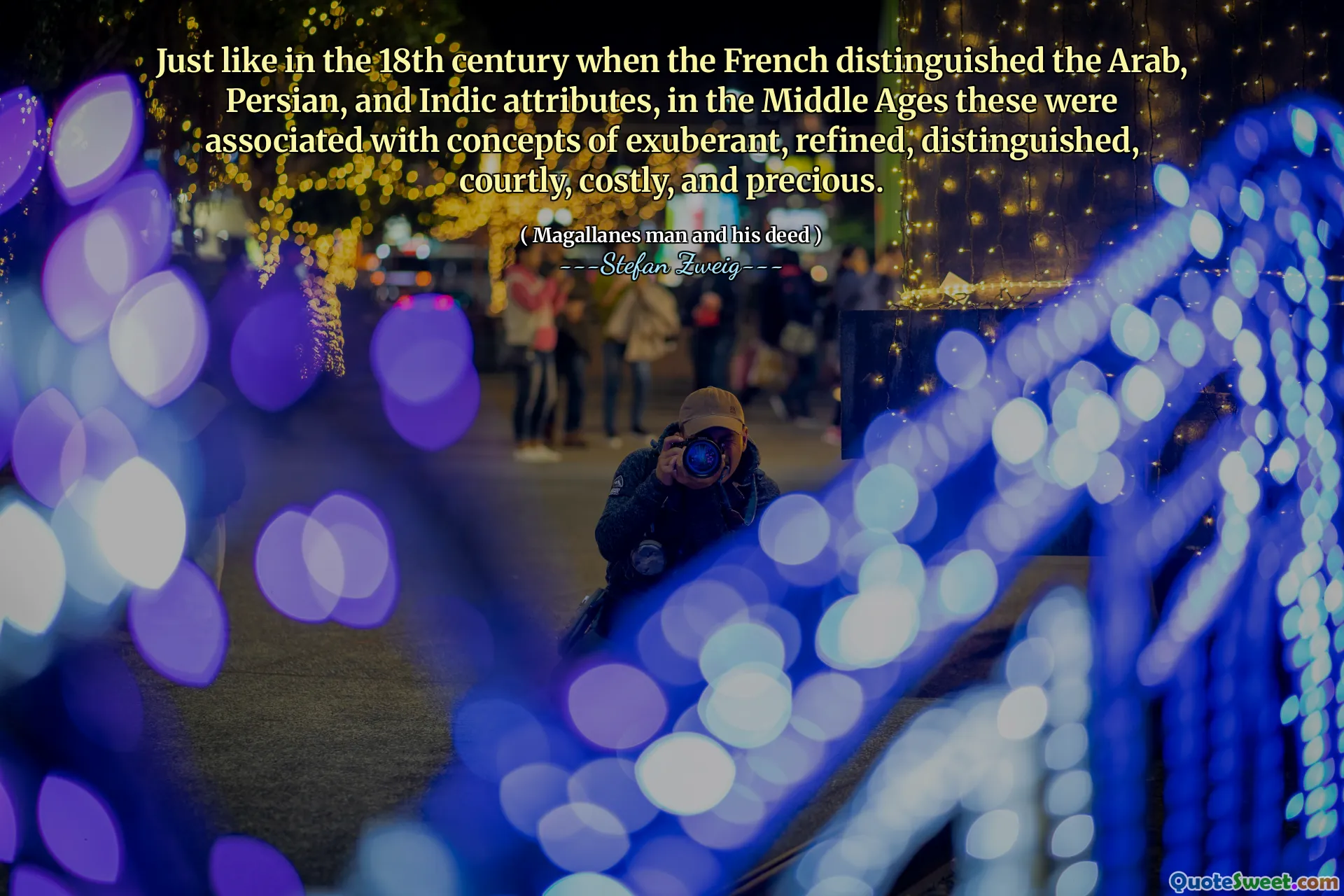
Just like in the 18th century when the French distinguished the Arab, Persian, and Indic attributes, in the Middle Ages these were associated with concepts of exuberant, refined, distinguished, courtly, costly, and precious.
This quote invites us to contemplate the enduring influence of cultural perceptions and classifications across different historical periods. During the 18th century, French cultural refinement played a pivotal role in shaping European views of Eastern and Middle Eastern attributes, often romanticizing and exoticizing them. The attribution of qualities such as being 'exuberant,' 'refined,' or 'precious' reflects a long-standing tendency to categorize foreign cultures as embodying idealized attributes that resonated with European tastes and aesthetics. Interestingly, the quote deftly links medieval perceptions with those of the Enlightenment era, suggesting a continued narrative of East-West distinction rooted in notions of sophistication, luxury, and status. This layered reflection underscores how perceptions are shaped through cultural lenses, influencing everything from art and trade to diplomatic relationships. Such associations also reveal the fascination—and at times, stereotypes—that developed as Europeans encountered different civilizations, often projecting their ideals onto these cultures. The idea of attributing these qualities to Arab, Persian, and Indic cultures encapsulates a broader dialogue about how civilizations are categorized, appreciated, or othered through the prism of contemporary values. This historical perspective reminds us of the importance of critically examining how cultural identities are constructed and how these perceptions influence intercultural understanding today. Recognizing these patterns helps us appreciate the richness and diversity of human civilization, while also remaining alert to the prejudices that can color our judgments.
(Magallanes man and his deed) - author: '---Stefan Zweig---'






